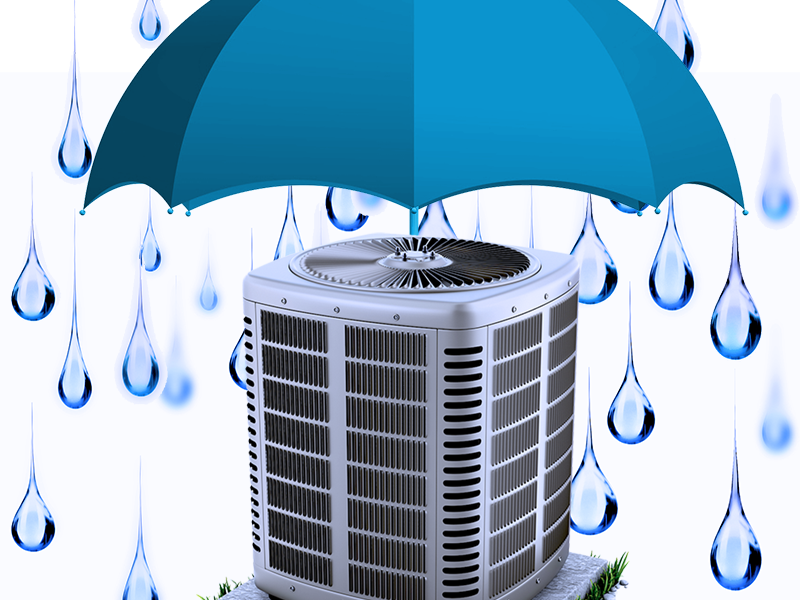India receives a fairly good amount of rainfall in the country and humidity comes alongside. Although we enjoy the weather here, we have our fair share of storms. Our fantastic air conditioners, of course, work tirelessly to keep us cool during hot, humid weather. However, rain and humidity can easily damage AC unit.
The most prevalent issue caused by inclement weather is system failure. This can be caused by a power loss, but more often than not, it is caused by the system working too hard. If your air conditioner is always running to keep your home cool, it will ultimately fail. If you live in a region where extreme weather is regular, you may do a few things to assist in preventing difficulties with your AC unit.


How Does Rain Damage AC Unit?
According to the stats from the Meteorological Department, India receives an average rainfall of 118 cm annually. Nevertheless, while you watch the rain fall from the luxury of your own home, have you ever thought if it may harm your air conditioner? With severe rains occurring on a frequent basis (particularly if a storm passes through) and your system’s electrical components, it’s not unrealistic to believe anything may go wrong.
If you’re worried about your air conditioner during a storm, the safest thing to do is turn it off. Yet we all know it isn’t always possible or even desired.
Air conditioners are designed to resist even the most torrential downpours. Cooling systems are built of aluminum, copper, metal, and a variety of other materials to withstand harsh weather. The electrical components are well-contained, and your air conditioner is safe even if it rains for days on end.
They contain specific fasteners that assist hold them in place during heavy winds. You should also make sure that your cooling system is properly secured to your home so that it does not get blown away or harmed by flying debris.
Don’t be too concerned about your air conditioner during a storm. That should be alright with good maintenance and common sense. In case of any queries, contact professional Air conditioner maintenance and service experts at We4u India.
How Does Humidity Damage AC Unit?
Humidity, as opposed to significant rainfall, may have an impact on your air conditioner. It does not immediately damage AC unit, but it makes it work harder to meet interior comfort requirements. Air conditioners are designed to reduce interior humidity in addition to cooling your house.
If you live in a humid climate, there are a few things you can do to aid your air conditioner. The first step is to ensure that your AC unit is properly suited for your home. No matter how low the humidity is, an undersized unit will struggle to keep up with demand.
The next step is to make sure your ductwork is properly sealed and insulated. Leaky ducts, which let wet air into the system, might lead to greater humidity levels in your house. Finally, think about purchasing a whole-house dehumidifier.
Effects
This will assist in removing moisture from the air before it reaches your air conditioner. High humidity can cause:
- Increased energy costs
- A decrease in energy efficiency
- Greater strain on your cooling system
- Your unit’s lifespan will be reduced.
- Higher repair requirements
- Increased frequency of system replacements
Also, Read-The Perks of Hiring Professional HVAC Service
Algae and Mold
Mold and algae growth are another risk connected with high humidity levels. Excess water goes from the drain pan to the condensation drain and then out to the main water line as condensation forms within our air conditioners.
With high humidity and moisture levels, these drains clog rapidly, resulting in stagnant water within your unit. Mold and algae begin to develop and thrive when moisture accumulates. These growths can increase the clog over time, increasing the likelihood of water damage or crawling into electrical components and inflicting damage. If you detect any weird odors or pools of water around your system, please contact us right away.



